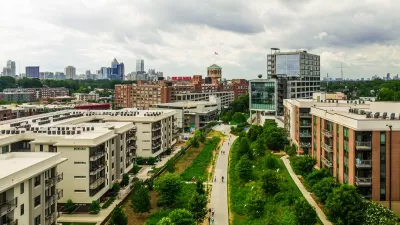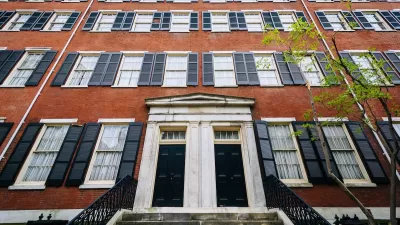The Washington Post has found that the D.C. government reduced the assessed value of commercial properties owned by some of the city's biggest developers last year to the tune of $2.6 billion, which translates to $48 million in lost tax revenue.
Writing in The Post, Debbie Cenziper, Nikita Stewart and Ted Mellnik disclose that the reductions in assessed value of commercial properties - more than eight times the total from 2011 - came as the result of a series of settlements negotiated by the Office of Tax and Revenue. According to the authors, "The settlements - which in most cases went against the earlier
recommendations of staff appraisers - reduced the 2012 assessments of
more than 500 commercial properties. Some owners saw the value of their
multimillion-dollar properties lowered by 40 percent or more, which
shaved tens or even hundreds of thousands of dollars off their tax
bills."
"Tax office officials say they have embraced the settlements to save
costs on tax appeal litigation," write Cenziper, Stewart, and Mellnik. "But the reductions have spurred anger
and confusion among some tax office employees whose concerns have
filtered out to internal auditors and the FBI, which has launched an
investigation, according to three people familiar with the matter who
spoke on the condition of anonymity because they fear they could lose
their jobs."
Although property taxes are the city's largest source of revenue, the actions of the city's independent tax appeals board occur outside of the public eye.
FULL STORY: Surge in D.C. tax office settlements reduces commercial property owners’ bills

Alabama: Trump Terminates Settlements for Black Communities Harmed By Raw Sewage
Trump deemed the landmark civil rights agreement “illegal DEI and environmental justice policy.”

Planetizen Federal Action Tracker
A weekly monitor of how Trump’s orders and actions are impacting planners and planning in America.

Why Should We Subsidize Public Transportation?
Many public transit agencies face financial stress due to rising costs, declining fare revenue, and declining subsidies. Transit advocates must provide a strong business case for increasing public transit funding.

Understanding Road Diets
An explainer from Momentum highlights the advantages of reducing vehicle lanes in favor of more bike, transit, and pedestrian infrastructure.

New California Law Regulates Warehouse Pollution
A new law tightens building and emissions regulations for large distribution warehouses to mitigate air pollution and traffic in surrounding communities.

Phoenix Announces Opening Date for Light Rail Extension
The South Central extension will connect South Phoenix to downtown and other major hubs starting on June 7.
Urban Design for Planners 1: Software Tools
This six-course series explores essential urban design concepts using open source software and equips planners with the tools they need to participate fully in the urban design process.
Planning for Universal Design
Learn the tools for implementing Universal Design in planning regulations.
Caltrans
Smith Gee Studio
Institute for Housing and Urban Development Studies (IHS)
City of Grandview
Harvard GSD Executive Education
Toledo-Lucas County Plan Commissions
Salt Lake City
NYU Wagner Graduate School of Public Service




























